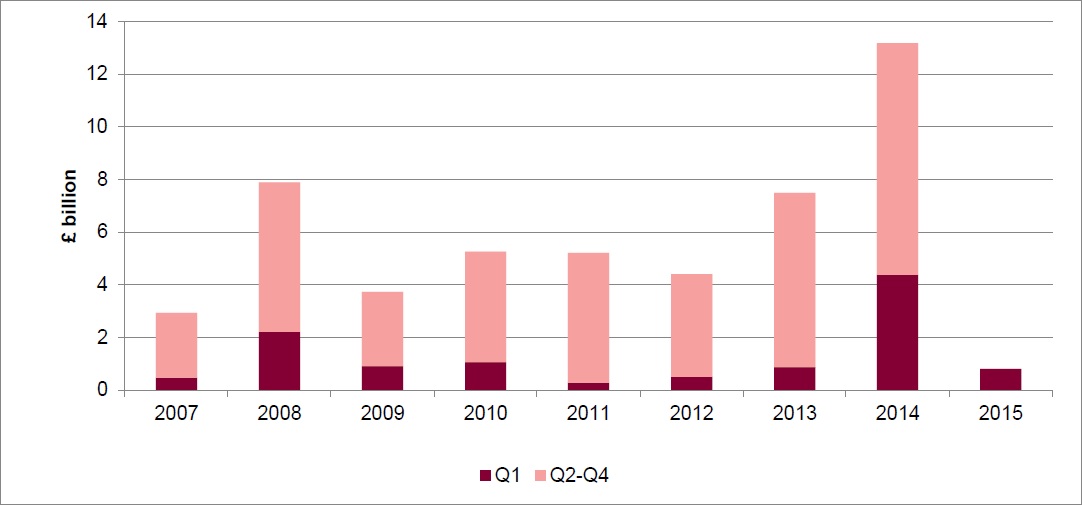A strong dollar will “dent” US economic growth and cause further problems for G20 nations Moody’s classes as vulnerable, including Turkey, South Africa, and Brazil, the ratings agency predicted.
The firm has cut its 2015 growth forecast for the US from 3.2% to 2.8% in its latest Global Macro Outlook report, due to the strength of the dollar and the effects of poor weather in the first quarter of the year, which reduced economic activity.
“The majority of countries across Latin America, China, and Asia look challenged.” —Stephen Jones, Kames CapitalMoody’s warned that a “disorderly reaction” to rising interest rates could have significant effects around the world as the dollar was likely to strengthen further.
While the dollar has already appreciated due in part to capital inflows from investors, Turkey, South Africa, and Brazil remained on the other side of the trade, with outflows causing their currencies to decline, Moody’s said.
“A disorderly reaction to US monetary tightening would prompt falls in asset prices globally and increases in risk premia and trigger a significant further appreciation of the US dollar,” wrote Marie Diron, a Moody’s senior vice president for credit policy. “This could happen if investors needed to adjust swiftly their expectations of future monetary policy towards what is currently projected by the Federal Reserve.”
The recent declines in the Turkish lira and South African rand indicated that economic activity in the two countries would be “negatively affected,” Diron added, while weak growth in Brazil meant the second-largest emerging economy was at risk of a deeper recession. Brazil has already recorded three consecutive quarters of negative GDP growth.
Separately, Kames Capital CIO Stephen Jones has warned that emerging markets “have had their day in the sun” and were being “battered” by currency flows and weak commodity prices.
In contrast, Jones highlighted India’s strong performance in 2014 due to “positive political change” and its position as an energy importer, meaning it benefited from low prices.
“Investors can point to India as a brighter spot, but certainly the majority of countries across Latin America, China, and Asia look challenged,” he said.
Moody’s Diron predicted India would be the fastest-growing G20 nation in the next two years, with GDP growth forecasted at 7.5%.
“Lower oil prices will reinforce gradual growth-enhancing reforms to support robust economic activity over the forecast period,” Diron said. “We forecast ongoing moderate inflation which will enable better planning of investment. Lower inflation will also raise real incomes, profits, and overall GDP growth.”
Diron’s report also projected a “moderate” impact on the Eurozone if Greece was to exit the currency bloc. The country is currently negotiating with the International Monetary Fund and the European Central Bank over the terms of its bailout package, and slipped back into recession in the first three months of the year.
“Trade and financial linkages between Greece and the rest of the monetary union are small,” Diron said, with French and German banks having reduced their exposure to Greece, and only 0.5% of German and French exports going to the struggling country.
“A 20% fall in Greek imports would imply a 0.1% direct impact on German and French exports and no measurable effect on GDP,” Diron added. However, Greece risked a “very deep and long-lasting recession” if it exited the Eurozone.
Related Content:Investors Shun US Stocks as Rate Rises Loom & Why Emerging Markets Will Avoid Another Crisis

 Source: LCP
Source: LCP